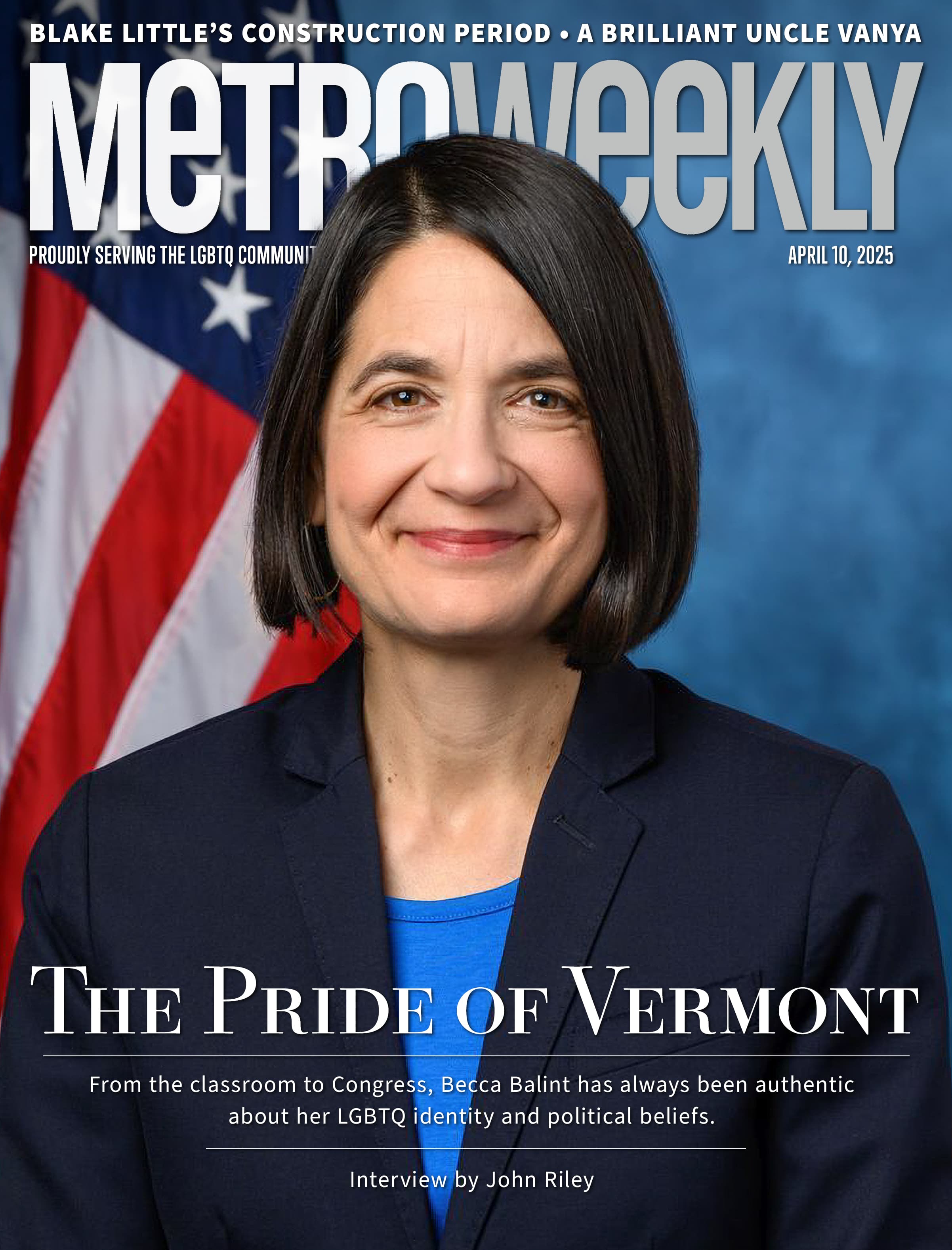‘Unseen’ Review: Trauma Central
Mosaic's 'Unseen' captures nuances of bearing witness to war and suffering, but its heroine doesn't come fully into focus.

After years spent dropping into war zones to document death and destruction, Mia, the photographer protagonist of Mona Mansour‘s time-shifting drama Unseen (★★★☆☆), has lost her way, literally and existentially. She might lament that nobody knows the trouble she’s seen, but even she has taken great pains to forget.
As she wakes up on the couch at her ex-girlfriend’s apartment in Istanbul, Mia (Katie Kleiger) can’t remember at all where she was last, what she witnessed, or how she made it safely from there to here. Stranded in a limbo of memory loss, Mia tries to piece together her recent past, while also struggling to pin down why she wound up chasing danger around the globe in the first place.
Directed by Johanna Gruenhut in a suitably grave production at Mosaic Theatre, Unseen interrogates Mia’s motives and her morality. Why does any well-meaning soul leave their comfortable, privileged life to seek out, and dive into, the world’s worst circumstances — for the adventure, the paycheck, the addictive rush of risking it all for a photo?
According to Mia’s editor Marian (Emily Townley), a former field photographer and a mentor of sorts, Mia’s job out there is to take photos that make people who don’t want to look, stop and look. It’s a noble cause, but what’s the cost to Mia’s soul as she jumps from assignment to assignment — from a bombed school in Gaza to a massacre in Syria — witnessing unfathomable human horrors? Marian hints there will be a psychic toll to pay.
Crucially, as Mia’s recollections make clear, no matter what combat arena she lands in, or what danger surrounds her, she always maintains hold of a lifeline back to a world where war exists merely in thoughts and prayers, and in pictures. The people in her photographs don’t have a choice to escape their suffering, whereas Mia, without knowing how it happened, made it from a war zone back into the arms of her ambivalent ex, Derya (Dina Soltan).
Mansour further emphasizes the privilege that separates Mia from the women she covers by giving her a mother, Jane (Townley, hitting two for two), who’s financially able and willing to jump on a plane from San Francisco to Turkey to come check on her daughter. Jane wonders, too, in one of the play’s rare moments of levity, what drives Mia to gallivant all over Middle East hotspots, quieting her chaotic thoughts with drugs: “Did we have too good a life?”
The play’s themes are well-delineated through raw clashes between mother and daughter, as well as Mia’s encounters with her subjects, like a teacher in Gaza righting the overturned tables after an artillery attack. Essaying that role, plus strong-willed Derya, and other women Mia meets in the field, Soltan supplies the fierce emotion that keeps Mia questioning her presence in spaces where she could be seen as an interloper or exploiter. One woman asks her, “Do you even see us?”
What Mia sees, a bit surprisingly, is nuance in the combat and destruction.
“It’s not all grim,” she pronounces. Still, that supposes she’s seen grim realities that, unfortunately, Kleiger’s delivery doesn’t convey. Mia’s decade-long journey — from neophyte photojournalist to a field-hardened, burundanga-addled pro who can step over piles of bodies — unfolds in the plotting but not necessarily in the performance.
In a drama about the cost to one’s soul of going to hell and back, we need to believe Mia’s been there, seen it all, and done more than just taken photos. Through flashbacks, and without much urgency, she assembles a picture of what happened before she woke up at Derya’s, but the details are cryptic, garbled in frequent shifts between locations, and past and present.
The ugliness that Mia has absorbed in her body and psyche, and how that’s changed her, is right there on paper, but the fully developed picture of it remains unseen.
Unseen runs through April 23 at the Atlas Performing Arts Center, 1333 H St. NE. Tickets are $50 to $64, with economy ticket options for each performance. Call 202-399-7993, ext. 2 or visit www.mosaictheater.org.
Support Metro Weekly’s Journalism
These are challenging times for news organizations. And yet it’s crucial we stay active and provide vital resources and information to both our local readers and the world. So won’t you please take a moment and consider supporting Metro Weekly with a membership? For as little as $5 a month, you can help ensure Metro Weekly magazine and MetroWeekly.com remain free, viable resources as we provide the best, most diverse, culturally-resonant LGBTQ coverage in both the D.C. region and around the world. Memberships come with exclusive perks and discounts, your own personal digital delivery of each week’s magazine (and an archive), access to our Member's Lounge when it launches this fall, and exclusive members-only items like Metro Weekly Membership Mugs and Tote Bags! Check out all our membership levels here and please join us today!
























You must be logged in to post a comment.